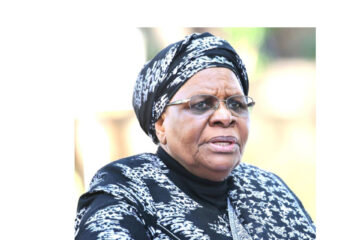Niël Terblanché
In a significant step towards strengthening its democratic process, the Electoral Commission of Namibia (ECN) is intensifying its preparations for the upcoming Presidential and National Assembly elections scheduled for the end of November this year.
An important point of these preparations is the General Registration of Voters, with the ECN currently conducting an essential voter registration exercise in the Khomas region.
This effort is part of a broader initiative to ensure that every eligible Namibian voter is registered and able to participate in the democratic process.
The voter registration exercise in Khomas marks the second phase of a comprehensive plan by the ECN to deploy cutting-edge technology for voter registration.
This initiative began last November when five regions were selected to test the new integrated mobile voter registration technology.
De Wet Silluka, the Manager of Corporate Communication at the ECN, stressed the potential of mobile technology to make voter registration more accessible to Namibians across the country.
“By leveraging such technology, the ECN aims to streamline the registration process, making it more efficient and user-friendly,” he said.
The registration exercise will cover ten constituencies of Khomas, indicating a significant undertaking by the ECN to ensure wide coverage and inclusivity.
In this regard, Silluka extended an invitation to all key stakeholders, especially political parties and organizations or associations, to participate in this critical registration exercise.
This collaborative approach underscores the ECN’s commitment to transparency and stakeholder engagement in the electoral process.
In the backdrop of these developments, it’s crucial to understand the general voter registration process in Namibia.
Voter registration in Namibia is conducted every ten years, serving as the foundation for free and fair elections.
The process is designed to ensure that all eligible citizens are accurately recorded in the voter registry, a critical step for the integrity of the electoral process.
Eligible voters are required to present valid identification documents to register, and with the integration of new technologies, the ECN is set to make this process more accessible and efficient than ever before.
According to Silluka, the ECN plans to engage with stakeholders to discuss any technical challenges or glitches encountered during the exercise immediately after the conclusion of the registration exercise.
He added that this feedback loop is part of the ECN’s efforts to refine and perfect the registration technology before its full-scale deployment during the General Registration of Voters.
As Namibia edges closer to its Presidential and National Assembly elections, the focus on innovative voter registration processes highlights the country’s dedication to enhancing its democratic framework.
Silluka said that by embracing new technologies and fostering a collaborative environment with stakeholders, the ECN is laying the groundwork for what promises to be a fundamental electoral cycle in Namibia’s democracy.




